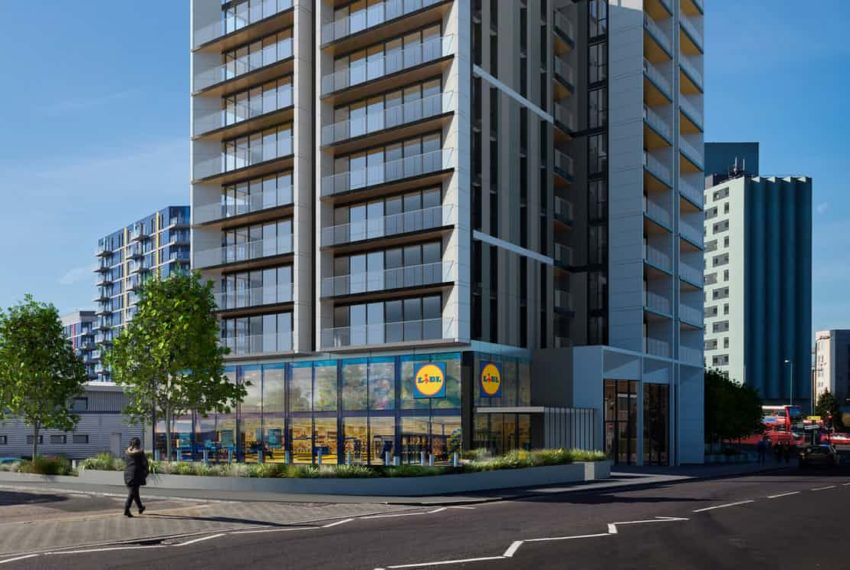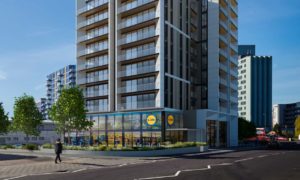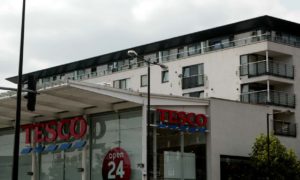
Discount grocer Lidl plans to build 3,000 homes and a school
Property development is latest tactic in bid to gain planning permission for new stores

Lidl is planning to lead the development of more than 3,000 homes and a primary school in the discount supermarket’s latest tactic to secure planning permission for a flurry of new stores around London.
The German retailer has toyed with developments involving housing since 2008, but has so far built just 335 homes. It now wants to increase its involvement in mixed-use schemes to include offices, hotels, student accommodation and flats.
Deer Park primary school in Richmond will have a new home over two floors above a Lidl store, including an outdoor playground with space for games such as football and hockey. The project is expected to completed next year.

Property experts said Lidl’s plans were likely to be fuelled by the difficulties in gaining planning permission for new stores in London at a time when existing retailers are struggling to make ends meet.
Promising to build flats and facilities such as schools can help to persuade councils that a new development could be beneficial to their community.
Lidl’s home-building spree echoes a technique already widely adopted by the mainstream supermarkets, particularly Tesco and Sainsbury’s. Tesco built hundreds of homes above its stores in Woolwich, south-east London, and Streatham, south-west London, while Sainsbury’s was part of a joint scheme with Barratt Homes involving 700 homes in Nine Elms, near Vauxhall, south-west London, and recently won permission for a £200m project in Redbridge, east London, involving 683 homes.
Morrisons has also entered the game, winning permission late last year for a plan to build nearly 600 homes as part of the redevelopment of its Camden store in north London.

Supermarkets have also been involved in hundreds of small-scale urban developments, such as transforming moribund pubs into local convenience stores with a few flats above.
With profits under pressure as a result of rising costs and sluggish sales, retailers are keen to maximise the income they can make from the sites they own. Selling or renting out homes or other developments above the shop can help to ensure a site is profitable.
“Lidl and Aldi both need to aggressively push into the south-east, especially London, and the only way they can afford to pay a premium for development sites is to also do residential,” said Tom Edson, a supermarket expert at the property consultancy Colliers. “Having people above the shop is not a bad thing. It means you have got a ready customer base,”
Under its UK managing director, Christian Härtnagel, who took the helm in 2016, Lidl has developments linked to 476 homes in the pipeline, about half of which will be linked to a store in Alperton, north-west London. A store with six flats above it is also due to open in Dartford, Kent, next week and more will go up in Epsom, Surrey, by 2020.
Lidl is planning to build some of the homes itself while others are part of wider schemes led by developers. It is understood that the firm wants to focus on affordable homes rather than luxury developments, in line with its money-saving image.
Härtnagel said: “We’re proud that our stores are increasingly helping to pave the way for mixed-use developments, which in turn are supporting important initiatives. It continues to mean a great deal to us that we are able to support many of the communities that we’re a part of by providing added value above and beyond affordable food.”
source: www.guardian.com


